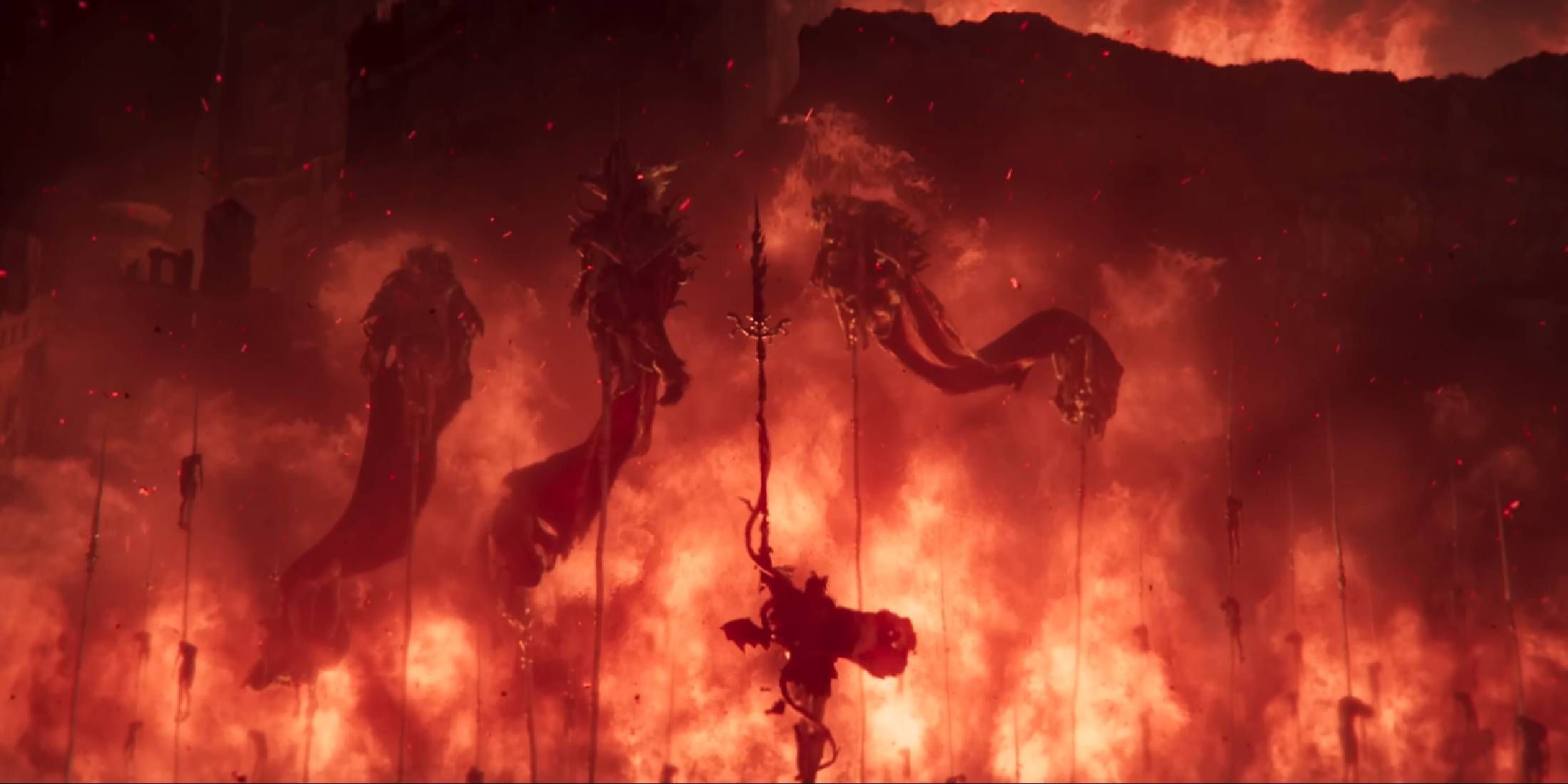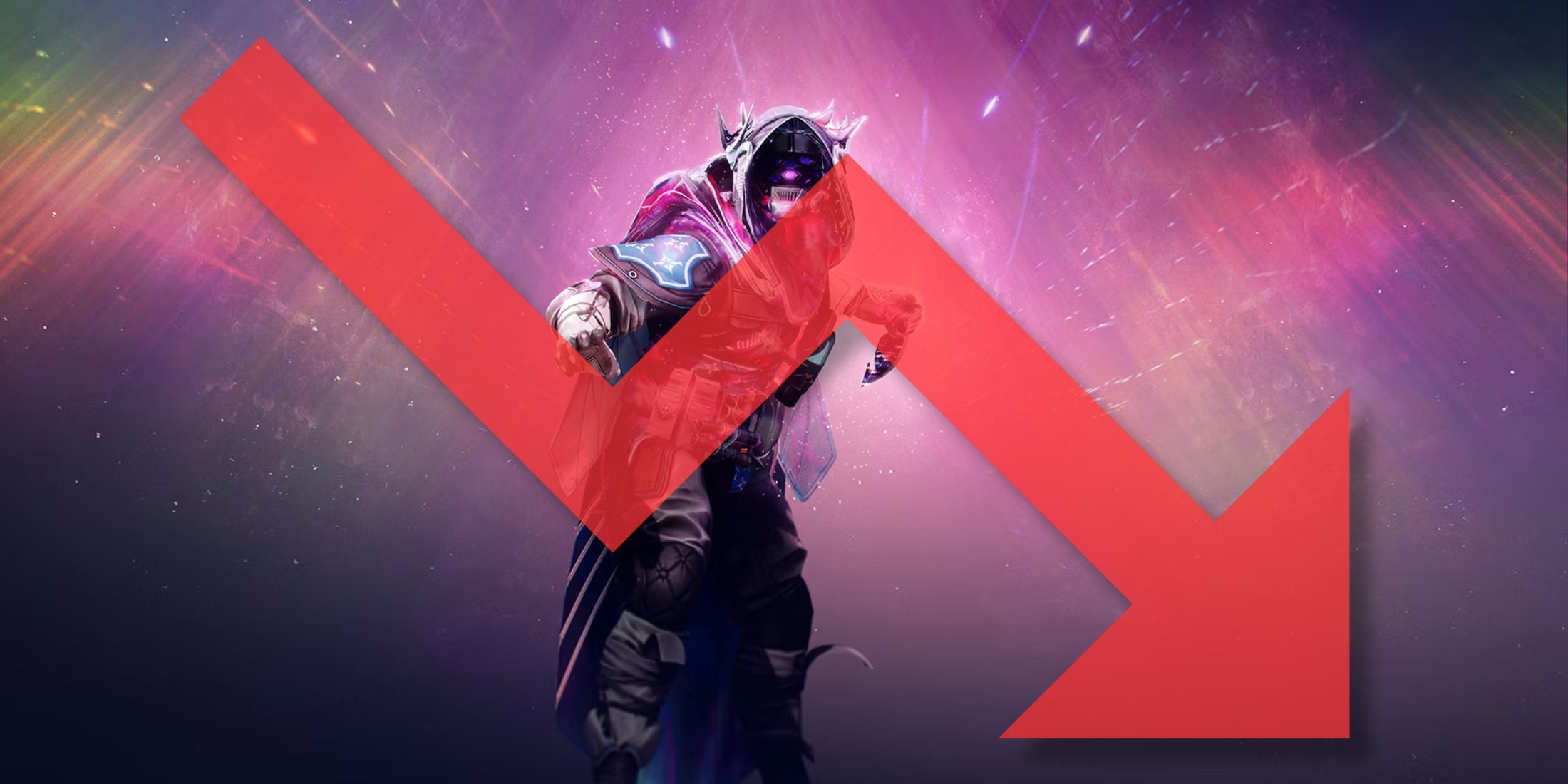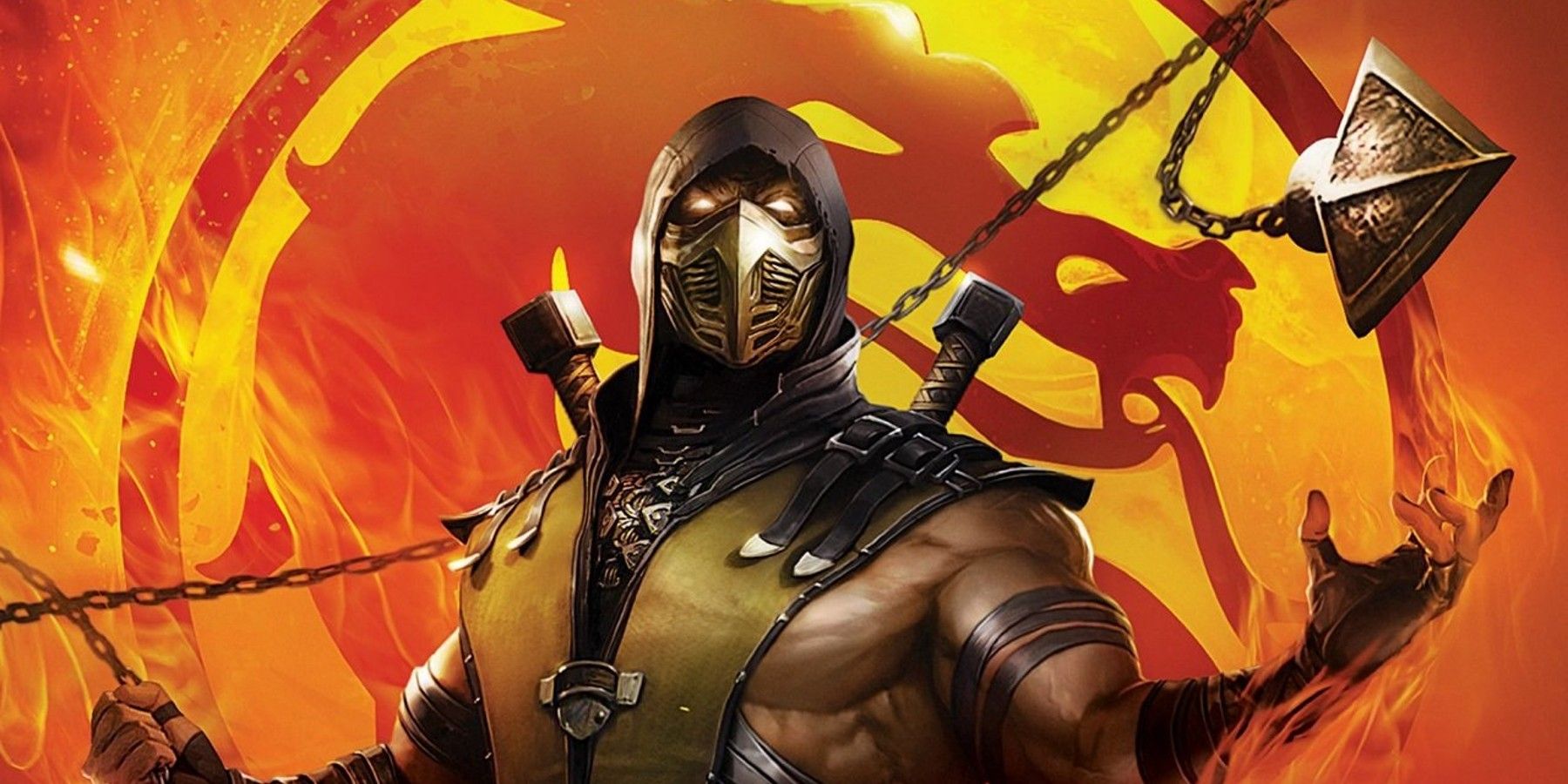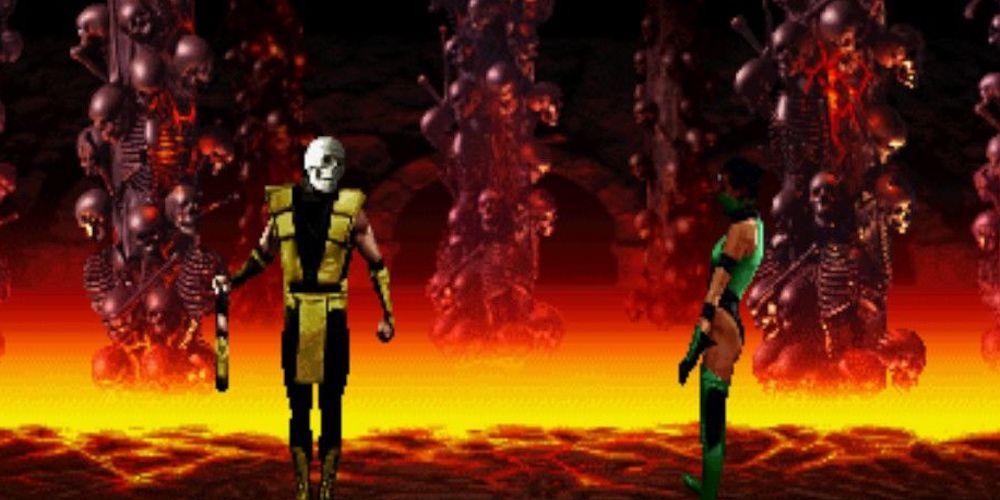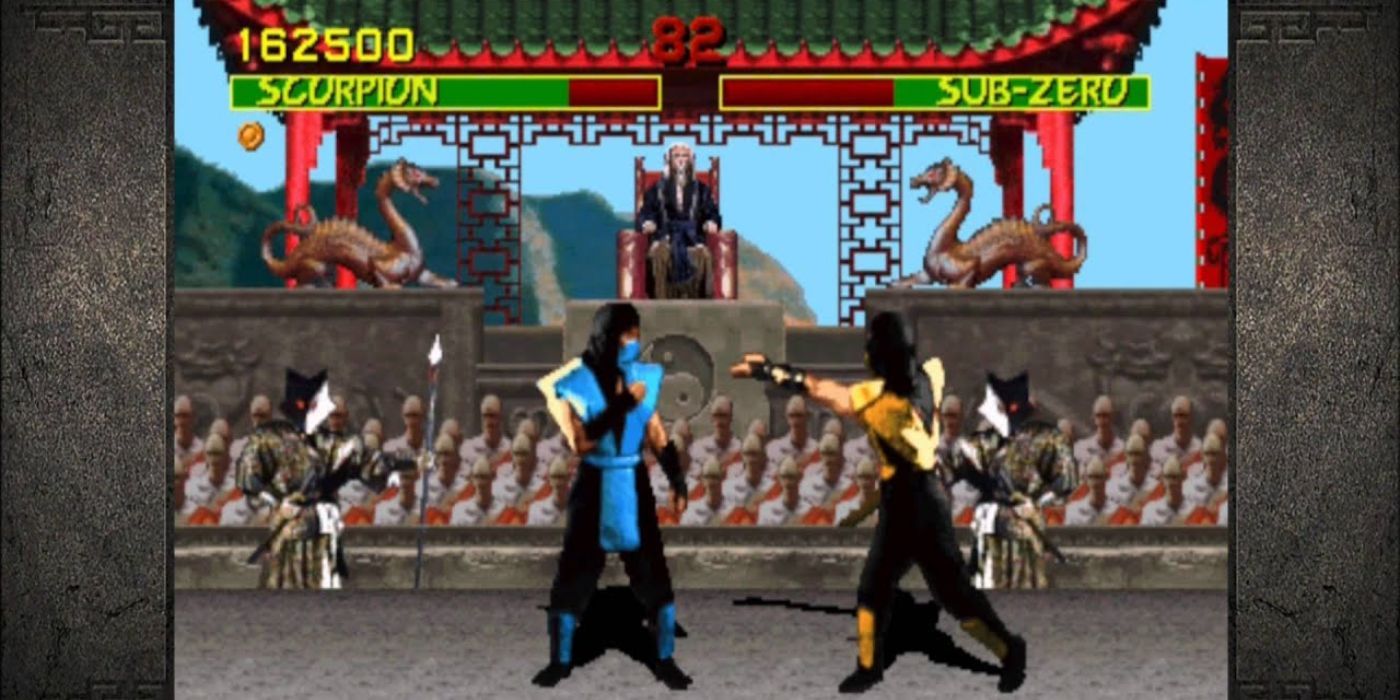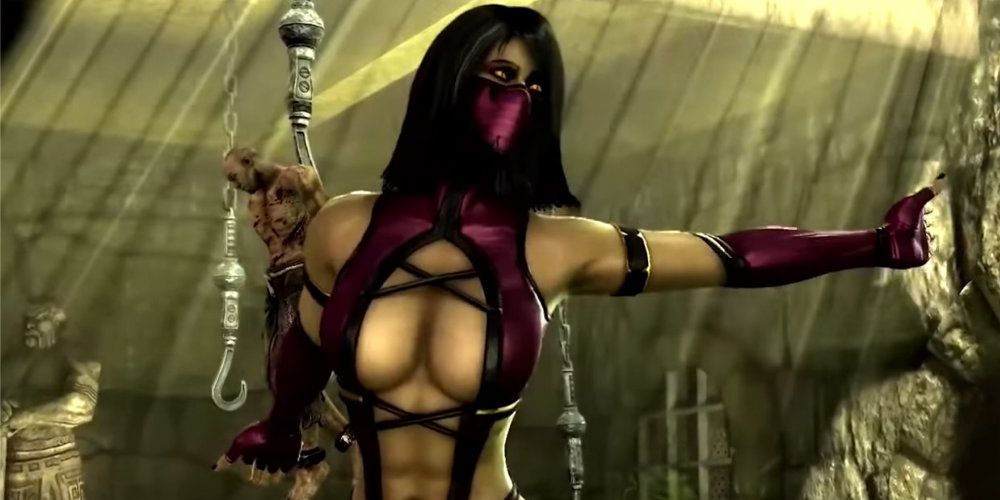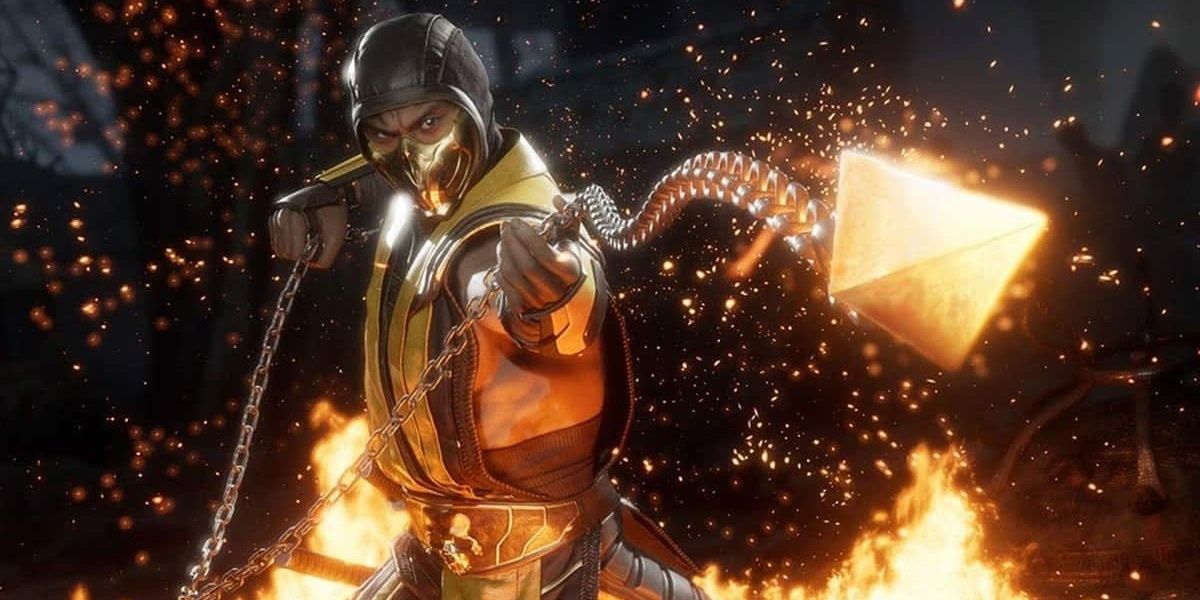For the last three decades, Mortal Kombat has sat comfortably at the top of the fighting game pyramid alongside juggernauts like Street Fighter and Tekken. Though it took a bit of a break in the 2000s, every Mortal Kombat entry has tried to iterate on its predecessor, with NetherRealm refusing to rest on its laurels. This can be seen in even just the last three entries in the series. 2011's Mortal Kombat revolutionized the franchise, bringing it to the modern day, while Mortal Kombat X doubled down on what worked, but pushed the technical boundaries of the series. Mortal Kombat 11 delivered the most complete fighting game experience in recent memory.
But it hasn't always been sunshine and rainbows for the Mortal Kombat franchise. From the moment the first Mortal Kombat hit arcade floors in 1992, the brand has been closely linked with controversy after controversy. From being one of the core reasons behind the creation of the ESRB rating system to being accused of racism and sexism to even causing PTSD in some developers, Mortal Kombat's history of controversies is long and bizarre.
Mortal Kombat's Congressional Hearing
The first Mortal Kombat made monumental waves in the public conscious when it first launched in 1992, but not all for the right reasons. While players adored the game's accessibility and cutting-edge graphics, their parents weren't so thrilled. In just a year, Mortal Kombat became the most infamous game in North America, sparking a widespread moral panic across the nation.
In 1993, video games weren't nearly as accepted as they are now. There was no Candy Crush for parents to play, nor was there a console in every home. Though the NES, SNES, and Sega Genesis were all around by 1993, that didn't stop a good portion of the population from viewing video games as this strange, potentially dangerous medium. Just as Doom was before it, Mortal Kombat was accused of poisoning the youth and encouraging violent tendencies.
The media took the narrative and ran with it for well over a year. Soon, Mortal Kombat's gruesome fatalities (which look laughably tame compared to those in Mortal Kombat X and 11) were the talk of the town, being shown on any and every news channel, of course being censored. With the media storm in full force, the American government decided to throw its hat in the ring, setting up a U.S. Congressional hearing in 1993.
Lead by Democrat Senator Herb Kohl and Senator Joe Lieberman, these Congressional hearings attempted to persuade the government that regulation for video games was needed. Mortal Kombat was shown repeatedly during the hearings, as was the FMV game Night Trap. To support their case, the Senators hired Professor Eugene F. Provenzo, who claimed that these games had such high-quality graphics and were so life-like that they undoubtedly influenced children.
As a result of the Congressional hearings, the Entertainment Software Ratings Board (ESRB) was created. Officially launched in 1994, the ESRB has been used by most of the gaming industry for the last 27 years, though some publishers have switched to using the clearer PEGI system. While these hearings didn't tarnish the Mortal Kombat brand for too long, they did affect the entire video game landscape going forward.
Mortal Kombat Being Blamed for Real-Life Violence
It didn't take long for Mortal Kombat to return to the courtroom, this time being used a reason behind the Columbine High School shooting in 1999. Following the devastating event, US President Bill Clinton made a statement condemning violence in video games, using Mortal Kombat, Doom, and Killer Instinct as named examples, and expressing that these titles "make our children more active participants in simulated violence."
In a now-infamous court case, Jack Thompson, a Christian conservative attorney, attempted to sue Midway Games and id Software on behalf of the parents of the Columbine victims. Though the case was unsuccessful, that didn't stop Mortal Kombat from being used as the cause of a slew of other real-world shootings over the next two decades.
1999 saw Brazil banning Mortal Kombat after a 24-year-old medical student participated in a shooting at the Morumbi Shopping center. 2007 saw Patrick Morris killing the 15-year-old Diego Aguilar in Oregon, with his defense team using Mortal Kombat as a reason behind Morris' heinous actions, saying it clouded his ability to understand consequences.
In a particularly horrific but infamous 2008 case, two teenagers were convicted after murdering a 7-year-old, Zoe Garcia. The killers said that they were only acting out the moves from Mortal Kombat. Despite the victim's parents stating that they didn't believe the video game had anything to do with the killing, Mortal Kombat was once again the subject of widespread criticism.
Mortal Kombat's Problematic Depictions
In the early-mid 90s, Mortal Kombat and its sequels were also subject to quite a bit of criticism from the Media Action Network for Asian Americans. The president of the group, Guy Aoki, remarked in 1994 that Mortal Kombat perpetuated existing stereotypes of Asians, claiming that characters such as Liu Kang, Raiden, Kung Lao, and Shang Tsung were all examples of the martial arts-Asian stereotype that dominated Hollywood.
Over the years, Mortal Kombat has also been heavily criticized for its portrayal of women. While some critics do appreciate that Mortal Kombat's women are put on an equal power level to the men, their appearance has often been heavily condemned, with character like Kitana and Mileena often wearing very little clothing and acting usually only in service to the male characters. Though these arguments are less frequent, the more recent Mortal Kombat titles have still received criticism over their portrayals of Asian, Native American, and female characters.
Mortal Kombat 11 Caused PTSD
While most of Mortal Kombat's controversies occurred in the 90s and early 2000s, this video game franchise continues to find itself in hot waters. The most recent large-scale controversy occurred just a few years ago, in 2019, with the release of Mortal Kombat 11. Following MK11's release, a handful of NetherRealm developers were interviewed by Kotaku.
In a piece titled "'I'd Have These Extremely Graphic Dreams': What It's Like To Work on Ultra-Violent Games Like Mortal Kombat 11," some developers stated that they had been diagnosed with PTSD following their work on the game. According to the devs, spending hours upon hours researching Mortal Kombat 11's realistic fatalities had lead to them having violent dreams, and becoming sleep-deprived because of them. This lead to an investigation into NetherRealm, in which the Mortal Kombat developer was found to have little to no formal procedure to assist the wellbeing of those working in this department.
Source: Kotaku

